Michelle Chacon, RN
By Michelle Chacon, RN
Certified TMS Clinical Operator, Sierra Tucson
Major depressive disorder (MDD) is one of the most common mental conditions in the world, affecting millions of individuals. It is estimated that approximately 4 million patients do not benefit from standard treatments for depression, even after repeated treatment attempts. In the Sequenced Treatment Alternatives to Relieve Depression (STAR*D) – the largest collaborative study to date on depression treatment and outcomes – researchers found the odds of achieving remission from depression diminish significantly with each failed antidepressant trial. Statistically, there is only about a 7 percent chance of remission by the time an individual is being treated with his or her fourth antidepressant medication regime. In addition, the likelihood of the patient discontinuing treatment due to side effects increases with each new course of medication. While these are some rather discouraging statistics, patients whose depression has not responded to first-line treatment have reason to be hopeful.
Transcranial magnetic stimulation (TMS) is a safe and proven treatment for major depressive disorder indicated for adult patients who have failed to respond to antidepressant medication. Cleared by the Food and Drug Administration (FDA) in 2008 for treatment of MDD, TMS is a form of neuromodulation that is non-invasive, non-systemic, and requires no anesthesia or sedation. It stimulates nerve cells in the brain by delivering highly focused, MRI-strength magnetic field pulses that lead to activation of cortical and deep brain structures known to be involved in mood regulation. The treatment is administered daily for 4-6 weeks and each session takes less than an hour to complete. The procedure can normalize and restore balance in areas of abnormal or decreased activity, resulting in a significant reduction of symptoms or complete remission from depression – all without the typical side effects caused by antidepressants.
Sierra Tucson pioneered the concept of TMS therapy in the residential treatment setting in February 2016. Since then, we have treated over 120 patients and administered more than 1,600 TMS sessions. Sierra Tucson’s therapeutic environment sets it apart from other outpatient providers of TMS therapy. Patients are engaged daily in process groups, therapeutic recreational activities, and integrative services, in addition to having the benefit of 24-hour staff care. Typically, an individual who undergoes TMS treatment for depression attends an outpatient facility, every day, for 4-6 weeks. Navigating 20 to 30 appointments around work, school, or family obligations may seem daunting to many people. Some individuals may not have the benefit of a local TMS provider, and Sierra Tucson represents an opportunity for them to try this groundbreaking treatment that had been previously inaccessible. For those who have decided to take the next step and enter residential treatment, the majority of TMS sessions can be completed during their stay at Sierra Tucson.
Who Benefits from TMS Therapy for Depression?
- Diagnosis of MDD with no psychotic features
- Medication failures, such as but not limited to:
- Treatment-resistant depression
- Those who have considered or are considering ECT for depression
- Marginally functional, for example:
- Someone who goes to work every day, but is essentially just “going through the motions.” He or she does not spend all day in bed but likely has the desire to do so.
- Motivated for treatment and willing to commit to 20-30 treatment sessions
As Sierra Tucson’s TMS clinical operator, I witness firsthand the remarkable healing and hope that TMS patients experience. As they return for TMS treatment sessions each day, I gradually see the light return to their eyes. They become more active; conversation with others becomes easier; and there is a renewed interest in what’s going on around them. They begin to re-engage with a life they had once given up on, and reconnect with people and loved ones from whom they retreated during their depressive episode. Helping patients recover from depression is the focus of my career. It challenges me in ways I never imagined, and I am committed to making a difference every day.













